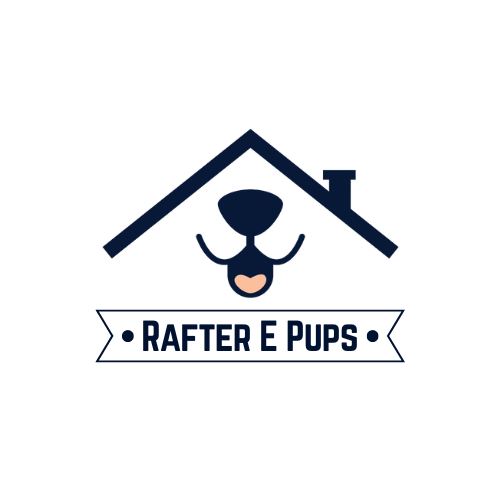When it comes to choosing a family dog, there are many factors to consider. Temperament, size, energy level, and compatibility with children are just a few of the important considerations. One breed that often comes up in discussions about family dogs is the Cavalier King Charles Spaniel. Known for their affectionate nature and charming appearance, Cavaliers seem like an ideal choice for many families. But is the Cavalier really a good family dog?
Yes, the Cavalier King Charles Spaniel is a wonderful family dog. Their affectionate and friendly nature, compatibility with children, adaptability to various living situations, and moderate exercise needs make them an excellent choice for families. However, prospective owners should be aware of their grooming requirements, potential health concerns, and the importance of proper training and socialization to ensure a well-adjusted and well-behaved family pet.
History and Origin of the Cavalier King Charles Spaniel
Before we delve into the suitability of the Cavalier King Charles Spaniel as a family dog, it's essential to understand the breed's history and origins. The Cavalier has a rich and storied past that dates back to the 17th century in England. These dogs were initially bred as companions for royalty and aristocracy, earning them the nickname "the royal spaniel."
During the reign of King Charles II of England, these dogs were particularly favored, and they even shared the king's name. King Charles II was known for his deep affection for these small spaniels, and his love for them helped popularize the breed. Their charming appearance and friendly disposition made them a beloved companion in the royal court.
However, the Cavalier King Charles Spaniel we know today has undergone significant changes from its historical counterpart. In the early 20th century, breeders sought to revive the older version of the breed, which had a flatter face and a more pronounced snout. This effort led to the development of the modern Cavalier King Charles Spaniel, characterized by its adorably expressive eyes, long, silky ears, and a gentle, friendly temperament.
What is the Temperament of the Cavalier King Charles Spaniel Like?
One of the most significant factors in determining whether a dog is suitable for a family is its temperament. Cavaliers are renowned for their gentle and affectionate nature, which makes them well-suited to family life. Here are some key temperament traits of the Cavalier King Charles Spaniel:
- Affectionate: Cavaliers are often described as "love sponges" due to their incredible affection for their human family members. They thrive on human interaction and are known for their desire to snuggle and be close to their owners.
- Friendly: These dogs are typically very friendly, both with their family and strangers. Their welcoming disposition makes them great candidates for households with children and guests.
- Playful: Cavaliers have a playful and fun-loving nature. They enjoy interactive play with their family members and can be a great source of entertainment for kids.
- Good with Children: One of the most significant advantages of Cavaliers as family dogs is their compatibility with children. They are generally patient and gentle, making them excellent companions for kids of all ages.
- Easygoing: Cavaliers are known for their easygoing attitude. They are not typically prone to aggressive behavior and are more likely to seek out affection than engage in confrontations.
- Adaptable: These dogs tend to adapt well to different living situations. Whether you live in a small apartment or a spacious house with a yard, Cavaliers can thrive as long as they receive enough love and attention.
- Intelligent: Cavaliers are intelligent dogs and are often easy to train. They respond well to positive reinforcement methods, which can make training a positive experience for both the dog and the owner.
- Affection for Other Pets: Many Cavaliers get along well with other pets, including cats and other dogs, making them a good choice for households with multiple animals.
Size and Physical Characteristics of the Cavalier
The size of a dog is another crucial consideration when choosing a family pet. Cavaliers are small to medium-sized dogs, with the following physical characteristics:
- Size: Cavaliers typically weigh between 13 to 18 pounds (5.9 to 8.2 kilograms) and stand around 12 to 13 inches (30 to 33 centimeters) in height at the shoulder.
- Coat: They have a silky, medium-length coat that comes in various color combinations, including Blenheim (chestnut and white), tricolor (black, white, and tan), black and tan, and ruby (solid red).
- Ears: One of the most distinctive features of the Cavalier King Charles Spaniel is their long, pendulous ears, which frame their expressive faces.
- Eyes: Their large, dark eyes are one of their most endearing features and contribute to their charming appearance.
The size of Cavaliers makes them a manageable choice for families living in smaller spaces, such as apartments or townhouses. Their moderate exercise needs also make them suitable for households with varying levels of physical activity.
Exercise and Activity Requirements of the Cavalier King Charles Spaniel
While Cavaliers are generally easygoing dogs, they still require daily exercise and mental stimulation to stay happy and healthy. Here's a closer look at their exercise needs:
- Daily Walks: Cavaliers benefit from daily walks, which can help keep them physically fit and mentally engaged. A brisk 30-minute walk each day is usually sufficient to meet their exercise needs.
- Playtime: They enjoy playtime with their family members, whether it's a game of fetch or interactive toys that challenge their problem-solving skills.
- Social Interaction: Cavaliers thrive on social interaction and enjoy spending time with their human family. Regular play and cuddle sessions are essential to keep them content.
- Training and Mental Stimulation: Incorporating training sessions and puzzle toys into their routine can provide mental stimulation, preventing boredom and potential behavior issues.
It's important to note that while Cavaliers enjoy physical activity, they are not overly demanding in this regard. This makes them a good fit for families with varying activity levels, as long as their exercise and socialization needs are met.
What are the Grooming Requirements of the Cavalier?
Cavalier King Charles Spaniels have a beautiful, silky coat that requires regular grooming to keep it in good condition. Here are some grooming considerations for this breed:
- Brushing: Regular brushing, at least a few times a week, is necessary to prevent matting and keep their coat looking its best.
- Bathing: Cavaliers should be bathed as needed, typically every few weeks or when they get dirty. Be sure to use a gentle dog shampoo to avoid skin irritation.
- Ear Care: Their long ears can be prone to ear infections, so it's essential to check and clean their ears regularly.
- Nail Trimming: Keep their nails trimmed to a comfortable length to prevent discomfort or injury.
- Dental Care: Like all dogs, Cavaliers require regular dental care. Brushing their teeth several times a week can help prevent dental issues.
While grooming does require some maintenance, many families find the process enjoyable and an excellent way to bond with their Cavalier.
Health Considerations for Cavalier King Charles Spaniels
Cavalier King Charles Spaniels are generally healthy dogs, but like all breeds, they can be prone to specific health issues. Here are some health considerations for prospective Cavalier owners:
- Heart Disease: Cavaliers are susceptible to heart diseases, particularly mitral valve disease (MVD). Regular veterinary check-ups can help monitor their heart health.
- Eye Problems: They can also experience eye issues, including cataracts and retinal problems. Regular eye exams are essential to catch and address any concerns.
- Ear Infections: Due to their long ears, Cavaliers are more prone to ear infections. Keeping their ears clean and dry can help prevent these issues.
- Hip Dysplasia: Although not as common as in larger breeds, Cavaliers can develop hip dysplasia. Responsible breeding practices can reduce the risk of this condition.
- Syringomyelia: This is a neurological condition that can affect Cavaliers, causing pain and discomfort. Responsible breeding can also help mitigate the risk of syringomyelia.
To ensure the health of your Cavalier, it's crucial to choose a reputable breeder who screens for these genetic conditions. Regular veterinary care, a balanced diet, and a healthy lifestyle can also contribute to a long and happy life for your pet.
Training and Socialization for Your Cavalier
Training and socialization are crucial aspects of raising a well-behaved family dog, and Cavaliers tend to excel in these areas. Here are some training and socialization tips for Cavalier King Charles Spaniels:
- Positive Reinforcement: Cavaliers respond well to positive reinforcement training methods. Reward-based training with treats, praise, and affection can be highly effective.
- Early Socialization: Expose your Cavalier to various people, places, and experiences from a young age. This helps them become well-adjusted and confident adults.
- Obedience Training: Basic obedience commands, such as sit, stay, and recall, are essential for safety and control. Consistent training can help your Cavalier become a well-behaved companion.
- Behavioral Challenges: Address any behavioral issues promptly and with patience. Consulting a professional dog trainer or behaviorist can be beneficial if you encounter specific challenges.
- House Training: Cavaliers are typically quick learners when it comes to house training, but consistency and positive reinforcement are key.
Cavaliers are known for their desire to please their owners, which can make training an enjoyable and rewarding experience for both the dog and the family.
Is the Cavalier a Good Family Dog?
After examining the various aspects of the Cavalier King Charles Spaniel's temperament, size, exercise needs, grooming requirements, health considerations, and training, it's clear that this breed has many qualities that make it a good family dog for the right family. Here are some factors to consider:
Pros:
- Affectionate and Friendly: Cavaliers are incredibly affectionate and friendly dogs, making them excellent companions for families.
- Good with Children: Their gentle nature and patience make them a great choice for households with kids.
- Adaptable: Cavaliers can adapt to various living situations and are suitable for both apartments and houses with yards.
- Moderate Exercise Needs: Their exercise requirements are manageable for families with varying activity levels.
- Intelligent and Trainable: They are intelligent and respond well to training, making them easy to teach basic obedience commands.
- Compatibility with Other Pets: Many Cavaliers get along well with other pets, making them suitable for households with multiple animals.
Cons:
- Grooming Requirements: Their silky coat requires regular grooming, which can be time-consuming.
- Health Concerns: Cavaliers are prone to certain health issues, including heart disease and eye problems, which may require ongoing veterinary care.
- Potential for Separation Anxiety: Due to their affectionate nature, Cavaliers can be prone to separation anxiety if left alone for extended periods.
- Exercise and Socialization Needs: While their exercise needs are moderate, they do require daily walks and social interaction to stay happy.
Cavalier King Charles Spaniel can indeed be a good family dog for the right family. Families who are willing to provide the love, attention, and care that this breed needs will find a loyal and affectionate companion in the Cavalier. However, it's essential to consider the grooming requirements and potential health issues, as well as ensure proper training and socialization to raise a well-adjusted and well-behaved family pet.

